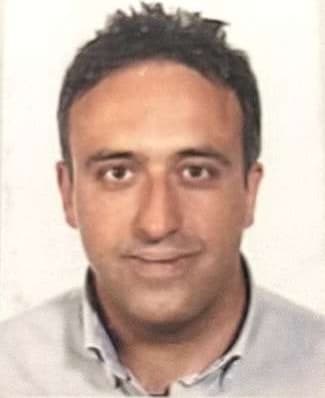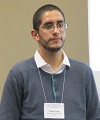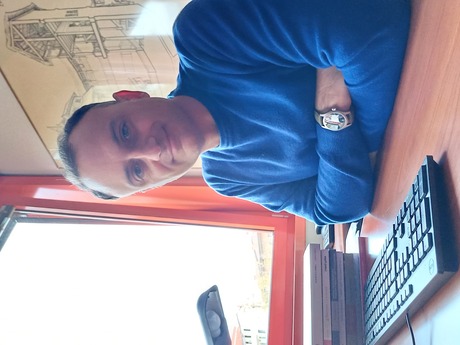Studying at the University of Verona
Here you can find information on the organisational aspects of the Programme, lecture timetables, learning activities and useful contact details for your time at the University, from enrolment to graduation.
Academic calendar
The academic calendar shows the deadlines and scheduled events that are relevant to students, teaching and technical-administrative staff of the University. Public holidays and University closures are also indicated. The academic year normally begins on 1 October each year and ends on 30 September of the following year.
Course calendar
The Academic Calendar sets out the degree programme lecture and exam timetables, as well as the relevant university closure dates..
| Period | From | To |
|---|---|---|
| I semestre (Lingue e letterature straniere) | Sep 27, 2021 | Jan 8, 2022 |
| Annuale (Lingue e letterature straniere) | Sep 27, 2021 | May 28, 2022 |
| II semestre (Lingue e letterature straniere) | Feb 14, 2022 | May 28, 2022 |
| Session | From | To |
|---|---|---|
| ESAMI LINGUE - sessione invernale | Jan 10, 2022 | Feb 12, 2022 |
| ESAMI LINGUE - sessione estiva | May 30, 2022 | Jul 23, 2022 |
| ESAMI LINGUE - sessione autunnale | Aug 29, 2022 | Sep 24, 2022 |
| Session | From | To |
|---|---|---|
| LAUREE LINGUE - sessione autunnale (a.a. 2020-2021) | Nov 8, 2021 | Nov 13, 2021 |
| LAUREE LINGUE - sessione straordinaria (a.a. 2020-2021) | Mar 28, 2022 | Apr 2, 2022 |
| LAUREE LINGUE - sessione estiva (a.a. 2021-2022) | Jul 11, 2022 | Jul 16, 2022 |
Exam calendar
Exam dates and rounds are managed by the relevant Foreign Languages and Literatures Teaching and Student Services Unit.
To view all the exam sessions available, please use the Exam dashboard on ESSE3.
If you forgot your login details or have problems logging in, please contact the relevant IT HelpDesk, or check the login details recovery web page.
Should you have any doubts or questions, please check the Enrollment FAQs
Academic staff
 daniele.caccin2@unibo.it
daniele.caccin2@unibo.it
 silvia.cavalieri@univr.it
silvia.cavalieri@univr.it
 piero.costaleon@univr.it
piero.costaleon@univr.it
 elisa.dallarosa@univr.it
elisa.dallarosa@univr.it
 wenwen.huang@univr.it
wenwen.huang@univr.it
 neliana.orlandi@univr.it
neliana.orlandi@univr.it
 sara.paolini@univr.it
sara.paolini@univr.it
 elena.rango@univr.it
elena.rango@univr.it
 cecilia.sideri@univr.it
cecilia.sideri@univr.it
 tania.triberio@univr.it
tania.triberio@univr.it
Study Plan
The Study Plan includes all modules, teaching and learning activities that each student will need to undertake during their time at the University.
Please select your Study Plan based on your enrollment year.
1° Year
| Modules | Credits | TAF | SSD |
|---|
1ST FOREIGN LANGUAGE2ND FOREIGN LANGUAGE1ST FOREIGN LITERATURE AND CULTUREGerman literature and culture 1
1ST FOREIGN LITERATURE AND CULTUREGerman literature and culture 1
2° Year activated in the A.Y. 2022/2023
| Modules | Credits | TAF | SSD |
|---|
1ST FOREIGN LANGUAGE2ND FOREIGN LANGUAGE1ST FOREIGN LITERATURE AND CULTURE OR A RELATED COURSEEnglish literature and culture 2
French literature and culture 2
German literature and culture 2
Spanish literature and culture 2
2ND FOREIGN LITERATURE AND CULTURE OR A RELATED COURSEEnglish literature and culture 2
French literature and culture 2
German literature and culture 2
Spanish literature and culture 2
Geography of communication and international trade
Italian literature and culture
Modern and Contemporary Economic History
Theory and Techniques of communication
3° Year activated in the A.Y. 2023/2024
| Modules | Credits | TAF | SSD |
|---|
1ST FOREIGN LANGUAGE2ND FOREIGN LANGUAGEComparative and European Public law
Principles of international marketing
| Modules | Credits | TAF | SSD |
|---|
1ST FOREIGN LANGUAGE2ND FOREIGN LANGUAGE1ST FOREIGN LITERATURE AND CULTUREGerman literature and culture 1
1ST FOREIGN LITERATURE AND CULTUREGerman literature and culture 1
| Modules | Credits | TAF | SSD |
|---|
1ST FOREIGN LANGUAGE2ND FOREIGN LANGUAGE1ST FOREIGN LITERATURE AND CULTURE OR A RELATED COURSEEnglish literature and culture 2
French literature and culture 2
German literature and culture 2
Spanish literature and culture 2
2ND FOREIGN LITERATURE AND CULTURE OR A RELATED COURSEEnglish literature and culture 2
French literature and culture 2
German literature and culture 2
Spanish literature and culture 2
Geography of communication and international trade
Italian literature and culture
Modern and Contemporary Economic History
Theory and Techniques of communication
| Modules | Credits | TAF | SSD |
|---|
1ST FOREIGN LANGUAGE2ND FOREIGN LANGUAGEComparative and European Public law
Principles of international marketing
| Modules | Credits | TAF | SSD |
|---|
Legend | Type of training activity (TTA)
TAF (Type of Educational Activity) All courses and activities are classified into different types of educational activities, indicated by a letter.
Geography of communication and international trade [Cognomi A-L] (2022/2023)
Teaching code
4S002937
Teacher
Coordinator
Credits
6
Language
Italian
Scientific Disciplinary Sector (SSD)
M-GGR/02 - ECONOMIC AND POLITICAL GEOGRAPHY
Period
I semestre (Lingue e letterature straniere) dal Sep 26, 2022 al Dec 23, 2022.
Learning objectives
The aim of the course is to provide the conceptual and methodological tools to understand the issue of international trade, in the economic, political and technological scenario of globalization and its relationship with geographical spaces. The focus will be on the factors and processes that explain the quantitative and qualitative evolution of international trade on a global scale, with particular reference to the new international division of labor, the role of transport and communications and the liberalization of trade. The contribution of local/regional systems to international trade and its capacity to shape the geographical spaces will also be analyzed. At the end of the course students will be able to: - analyze and critically read globalization, the role of the global economic players and the new geography of production and international trade; - use the statistical information about international trade.
Prerequisites and basic notions
There are no specific requirements.
Program
The main concepts, topics and methods of Economic Geography
Globalization, its dimensions and recent trends: a geographical point of view
International trade in the global economy: the flows and networks of international trade and of Foreign Direct Investments
Transport and communication
ICT and e-commerce
Multinational corporations and the new spatial division of labor
The new industrial spaces: China and emerging economies
Local production systems: industrial districts and high-tech clusters
The liberalization of international trade: multilateralism and regionalism
The global economic players: the role of World Trade Organization
The new geography of production: reshoring and Industry 4.0
The effect of human activities on natural environment
Case studies analysis
Bibliography
Didactic methods
Class teaching to introduce the main theoretical concepts and the methodological skills to analyze international trade; discussion of case studies. The slides of the lessons and further material will be available on the Moodle platform before each lesson.
Reference books
For students attending lectures:
Conti G., Dematteis G., Nano F., Vanolo A., Geografia dell’economia mondiale, Utet Università, Milano, 2022 (V Edition) (chapters 1-2-3-7-8-9-12)
Slides and additional didactic material downloadable from the Moodle platform.
For students not attending lectures:
Non attending students will replace the case studies and other topics discussed during the lessons with the study of the following textbooks:
Conti G., Dematteis G., Nano F., Vanolo A., Geografia dell’economia mondiale, Utet Università, Milano, 2022 (V Edizione)
Parenti A., Il WTO, Il Mulino, Bologna, 2011
Learning assessment procedures
Written examination with ten open questions on the topics of the course, formulated so that the student can provide brief and effective responses. Available time to complete the exam: one hour.
The exam will evaluate the knowledge of the course topics and the competencies of the methods and scientific language of Economic Geography.
For attending students, the questions will regard the handbook, the topics and the case studies discussed during the lessons.
For non attending students, the questions will regard the two textbooks in the program. They will replace the topics and the case studies discussed during the lessons.
Evaluation criteria
Up to a maximum of three points for each answer. The evaluation of the exam is expressed in thirties.
Criteria for the composition of the final grade
The final mark is made up of the sum of the ten scores.
Exam language
Italiano
Type D and Type F activities
Nei piani didattici di ciascun Corso di studio è previsto l’obbligo di conseguire un certo numero di CFU di tipologia D e di tipologia F.
CFU D (attività a scelta dello studente)
I CFU D possono essere acquisiti mediante:
- insegnamenti non obbligatori nel proprio piano didattico (previa approvazione del Presidente del Collegio didattico per insegnamenti non selezionabili in autonomia)
- attività accreditate dal Collegio didattico
- competenze linguistiche (diverse o ulteriori) rispetto a quelle obbligatorie
- tirocini o stage
- TALC (competenze trasversali).
Competenze trasversali TALC
Nota bene: i corsi TALC sono riconosciuti solo come CFU D.
Il numero di CFU D va calcolato complessivamente sull’intero triennio/biennio e non è legato all'annualità.
CFU F
I CFU F sono solitamente relativi ad abilità informatiche, competenze linguistiche, stage e tirocini e ulteriori attività formative accreditate in questa tipologia dal Collegio Didattico.
Nel corso di laurea in Lingue e culture per il turismo e il commercio internazionale sono previste le seguenti tipologie:
- 3 CFU per terza lingua (livello B1)
- 3 CFU per informatica
- 6 CFU per stage obbligatorio.
Le competenze informatiche possono essere acquisite attraverso:
- il superamento della prova pratica presso le aule informatiche di Ateneo,
- la frequenza dei corsi attivati da scuole e centri accreditati dall’AICA (Associazione Italiana per l’Informatica e il Calcolo Automatico) o riconosciuti dalla Provincia e dalla Regione e superamento della relativa prova finale. Le domande per il riconoscimento delle competenze informatiche acquisite precedentemente vengono esaminate dalla Commissione per il riconoscimento delle Competenze Informatiche.
Le attività di stage sono finalizzate a far acquisire allo studente una conoscenza diretta in settori di particolare utilità per l’inserimento nel mondo del lavoro e per l’acquisizione di abilità specifiche d’interesse professionale.
Documents and news
-
 Domanda di riconoscimento crediti su certificazioni esterne di abilità-competenze informatiche
(pdf, it, 524 KB, 16/06/21)
Domanda di riconoscimento crediti su certificazioni esterne di abilità-competenze informatiche
(pdf, it, 524 KB, 16/06/21)
| years | Modules | TAF | Teacher |
|---|---|---|---|
| 1° 2° 3° | Introduction to robotics for humanities students | D |
Paolo Fiorini
(Coordinator)
|
To discover all the teaching activities accredited by the foreign teaching college click here
Career prospects
Module/Programme news
News for students
There you will find information, resources and services useful during your time at the University (Student’s exam record, your study plan on ESSE3, Distance Learning courses, university email account, office forms, administrative procedures, etc.). You can log into MyUnivr with your GIA login details: only in this way will you be able to receive notification of all the notices from your teachers and your secretariat via email and soon also via the Univr app.
Student login and resources
Gestione carriere
Assegnazione tutore
Attività accreditate D/F
Calendario didattico dettagliato
Cambio lingua curriculare
Competenze informatiche
Competenze linguistiche (prima e seconda lingua)
Competenze linguistiche in triennale (terza lingua CFU F)
Compilazione del piano didattico
Corso di Lingua portoghese
Erasmus+ e altre esperienze all'estero
Linguistic training CLA
Presentazione dei corsi di studio e Open day
Graduation
List of theses and work experience proposals
| Stage | Research area |
|---|---|
| PROGETTO MAMBRINO Stage per bibliografia | Various topics |
Saperi minimi
Stage e tirocini
Nel piano didattico della laurea triennale in Lingue per il turismo e il commercio internazionale (L12) è previsto un periodo di stage obbligatorio (CFU 6) in organizzazioni imprenditoriali.
Le attività di stage sono finalizzate a far acquisire allo studente una conoscenza diretta in settori di particolare interesse per l’inserimento nel mondo del lavoro e per l’acquisizione di abilità professionali specifiche.
Le attività di stage sono svolte sotto la diretta responsabilità di un singolo docente presso studi professionali, enti della pubblica amministrazione, aziende accreditate dall’Ateneo veronese.
I crediti maturati in seguito ad attività di stage saranno attribuiti secondo quanto disposto nel dettaglio dal “Regolamento d’Ateneo per il riconoscimento dei crediti maturati negli stage universitari” vigente.
- Tutte le informazioni in merito agli stage per futuri studenti sono disponibili alla pagina Stage e tirocini.
- Tutte le informazioni in merito agli stage per studenti iscritti sono pubblicate in MyUnivr - come fare per - stage e tirocini.
- Tutte le informazioni in merito agli stage per le aziende sono disponili alla pagina Stage e tirocini per azienze.
Ulteriori informazioni al seguente link https://www.univr.it/it/i-nostri-servizi/gestione-carriere-studenti-lingue-e-letterature-straniere/stage-e-tirocini-lingue-e-letterature-straniere

 +39 045802 8409
+39 045802 8409























































